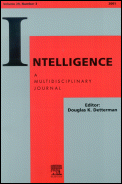Ability-Based Pairing Strategies in the Team-Based Training of a Complex Skill: Does the Intelligence of your Training Partner Matter
-
 ABSTRACT Intelligence researchers traditionally focus their attention on the individual level and overlook the role of intelligence at the interindividual level. This research investigated the interplay of the effects of intelligence at the individual and interindividual levels by manipulating the intelligence-based composition of dyadic training teams. Using a sample of 176 young adult males and a complex computer-based criterion task, homogeneous and heterogeneous dyadic training teams were created based on intelligence scores, and both team and individual performance were assessed throughout 10 h of training. Results indicated a strong additive influence of intelligence on team performance and a slightly positive nonadditive effect in uniformly high (HH)-ability teams. Trainees' individual skill acquisition was strongly correlated with the performance of their teams. However, nonadditive partner effects were observed such that high-ability trainees acquired significantly more skill when paired with high-ability partners instead of low- ability partners, but low-ability trainees benefited very little from being paired with high-ability partners.
ABSTRACT Intelligence researchers traditionally focus their attention on the individual level and overlook the role of intelligence at the interindividual level. This research investigated the interplay of the effects of intelligence at the individual and interindividual levels by manipulating the intelligence-based composition of dyadic training teams. Using a sample of 176 young adult males and a complex computer-based criterion task, homogeneous and heterogeneous dyadic training teams were created based on intelligence scores, and both team and individual performance were assessed throughout 10 h of training. Results indicated a strong additive influence of intelligence on team performance and a slightly positive nonadditive effect in uniformly high (HH)-ability teams. Trainees' individual skill acquisition was strongly correlated with the performance of their teams. However, nonadditive partner effects were observed such that high-ability trainees acquired significantly more skill when paired with high-ability partners instead of low- ability partners, but low-ability trainees benefited very little from being paired with high-ability partners.